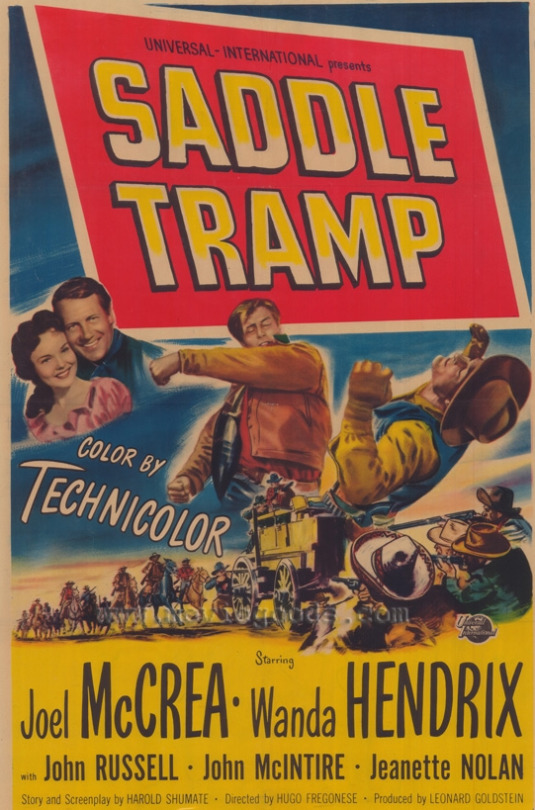#gordon gebert
Explore tagged Tumblr posts
Text










Holiday Affair (1949) Don Hartman
December 6th 2024
#holiday affair#1949#don hartman#janet leigh#robert mitchum#gordon gebert#wendell corey#esther dale#griff barnett#harry morgan#henry o'neill#christmas gift#the man who played santa claus#christmas 2024
11 notes
·
View notes
Text
Janet Leigh and Gordon Gebert in Holiday Affair (1949).

1 note
·
View note
Text

Valentina Cortese and Richard Basehart in The House on Telegraph Hill (Robert Wise, 1951)
Cast: Valentina Cortese, Richard Basehart, William Lundigan, Fay Baker, Gordon Gebert, Steven Geray, Herb Butterfield, Natasha Lytess, Kei Thin Chung, John Burton, Katherine Meskill, Mario Siletti. Screenplay: Elick Moll, Frank Partos, based on a novel by Dana Lyon. Cinematography: Lucien Ballard. Art direction: John DeCuir, Lyle R. Wheeler. Film editing: Nick DeMaggio. Music: Sol Kaplan.
The key to a successful thriller is to keep the audience from asking those questions you're not supposed to ask: Why did X do that instead of that? What caused Y to act that way? Would a sane person really behave that way? And when the film ends, have all the loose threads been accounted for? The House on Telegraph Hill just barely manages to dodge those questions, except at the end. It's sometimes rather clumsily put together. For example, we are led to believe at the beginning that the film is being narrated in voiceover by the protagonist, Viktoria Kowalska (Valentina Cortese). But in mid-film we watch a conversation that Viktoria could not have overheard. We later find that the voiceover is actually Viktoria telling her story to investigators, but the momentary break in point of view is jarring. The ending, too, feels rushed. We have invested enough time in the story that we need a clearer outcome for Viktoria and others. The premise is a familiar one, given a postwar spin: A woman pretends to be someone she isn't and suffers the consequences. In Viktoria's case, she was a prisoner in the Belsen concentration camp, where she befriended Karin Dernakova (Natasha Lytess), who died there after telling Viktoria that she had a son who had been sent at the start of the war to live with her aunt in San Francisco. When the camp is liberated, Viktoria, who has no family of her own left in Poland, finds it expedient to assume the identity of Karin, whose papers she has been given for safekeeping. Viktoria is well-meaning; she doesn't really plan to defraud anyone, but through a rather rushed-through series of circumstances, she winds up in San Francisco pretending to be the mother of Karin's child, Chris (Gordon Gebert). Not only that, she also marries Chris's guardian, Alan Spender (Richard Basehart). So now she finds herself in an elegant mansion on the top of Telegraph Hill, playing mother to a boy who stands to inherit a fortune. And of course she also finds herself in danger. Cortese's performance makes some of this credible, but it was her only important film in America: She married her co-star, Basehart, and returned to Italy. He went with her, but except for Federico Fellini's La Strada (1954) and Il Bidone (1955), his European films were undistinguished, and he returned to the States after their divorce in 1960. The House on Telegraph Hill is plenty watchable, if only because of cinematographer Lucien Ballard's use of the San Francisco location.
0 notes
Text

97 notes
·
View notes
Text

Hugo Fregonese, April 8, 1908 – January 11, 1987.
With Joel McCrea, Jimmie Hunt, and Gordon Gebert on the set of Saddle Tramp (1950).
8 notes
·
View notes
Photo










Holiday Affair is a 1949 romantic comedy film starring Robert Mitchum and Janet Leigh.
#holiday affair#holiday affair 1949#romantic comedy#old hollywood#vintage hollywood#old hollywood movies#golden age of hollywood#christmas movies#old films#old hollywood christmas movies#Robert Mitchum#Janet Leigh#Wendell Corey#Gordon Gebert
9 notes
·
View notes
Photo

33 notes
·
View notes
Text

Saddle Tramp 1950
#joel mccrea#wanda hendrix#john mcintire#john russell#jeanette nolan#russell simpson#ed begley#jimmy hunt#orley lindgren#gordon gebert#gregory moffett#antonio moreno#john ridgely#walter coy#joaquin garay#peter leeds#michael steele#paul picerni#terry gilkyson#raymond bond#victor cox#jim hayward#thomas browne henry#howard negley#westerns#western movies#western#western movie#saddle tramp
26 notes
·
View notes
Text

Gordon Gebert as Bobby listens to Dan Duryea's frantic phone conversation in a scene from Chicago Calling (1951). Gordon was born in Des Moines and had 37 acting credits, from 1949 to a 1960 short. This is his fifth honorable mention, after The Flame and the Arrow, Saddle Tramp, Fourteen Hours, and Narrow Margin.
1 note
·
View note
Photo


The House on Telegraph Hill | Robert Wise | 1951
Valentina Cortese, Gordon Gebert
22 notes
·
View notes
Photo





Holiday Affair (1949) Don Hartman
December 21st 2019
#holiday affair#1949#don hartman#robert mitchum#janet leigh#wendell corey#gordon gebert#griff barnett#esther dale#henry o'neill#harry morgan
9 notes
·
View notes
Photo










Robert Mitchum, Janet Leigh, Gordon Gebert & Wendell Corey in HOLIDAY AFFAIR (1949)
7 notes
·
View notes
Photo

#50s#house on telegraph hill#richard basehart#valentina cortesa#william lundigan#fay baker#gordon gebert#movie poster#movie posters
9 notes
·
View notes
Note
do you have favorite sources for the short form works you read? journals/blogs/podcasts/etc you subscribe to?
Sure you know, since I've said this many times before, but I prefer short-form articles, essays, etc. to full-length books. More condensed information, often without superfluous "setting the stage" and introductory/re-hashed material, without the incentive to appease publishers or popular expectations. Easier to access, quicker to read and discuss with others. I'd prefer to read from activists and scholars outside of or ostracized from traditional academia, including outside of the US/Europe. (I don’t revere academia and the best “ontologies” or most “cutting-edge” theories in geography/space/place have already been considered and articulated by Indigenous thinkers and the Black diaspora for generations.) I look to so-called "critical geography" or "radical geography" journals, and the personal sites/blogs of activists and abolitionist groups.
Subjects I focus on: environmental history of empires and colonization; traditional ecological knowledge and Indigenous geography and ways of knowing; Anthropocene, Capitalocene, legacy of plantation systems; extinction and introduced species; resistance, fugitivity, and carceral geography; refugees; the making and enforcement of borders, boundaries, frontiers, hinterlands; ruins, ruination, haunting, trauma, social death; Pleistocene fauna and Paleolithic/ancient anthropogenic environmental change; islands, tidalectics, archipelagic thinking; wastelanding and sacrifice zones; region-specific geography, especially the sea, Oceania, the Pacific, Caribbean, Latin America, and Turtle Island; human relationships with other-than-human creatures, multispecies world-building. (Long-form or full-length books I've previously recommended about these subjects.)
Journals:
My favorites:
Antipode: A Radical Journal of Geography /// Geoforum /// AlterNative: An International Journal of Indigenous Peoples /// ACME: An International Journal for Critical Geographies /// The Global South
Human Geography: A New Journal of Radical Geography /// Gender, Place & Culture: A Journal of Feminist Geography /// Small Axe: A Caribbean Platform for Criticism /// Island Studies Journal /// Environment and Planning D: Society and Space /// International Journal of Critical Indigenous Studies
And also:
Journal of the Native American and Indigenous Studies Association /// borderlands /// Capitalism, Nature, Socialism /// Gastronomica: The Journal of Critical Food Studies /// Settler Colonial Studies /// Interventions: International Journal of Postcolonial Studies
Journal of Immigrant and Refugee Studies /// Landscape History: Journal of the Society for Landscape Studies /// Journal of Colonialism and Colonial History /// Callaloo: A Journal of African Diaspora Arts and Letters
Children’s Geography /// Environmental Humanities /// Anthurium: A Caribbean Studies Journal /// Mobilities /// African and Black Diaspora: An International Journal /// Sargasso: A Journal of Caribbean Literature, Language and Culture /// Emotion, Space and Society
-------
Some favorite scholars:
Postcolonial Caribbean environments: Lizabeth Paravisini-Gebert; Eduoard Glissant; Aime Cesaire
Tidalectics, archipelagic thinking, the Pacific; international solidarity: Elizabeth DeLoughrey; Epeli Hau’ofa
Environmental debris left behind by imperialism; haunting; “social death”: Avery Gordon; Tim Edensor; Hugo Reinert; Ann Laura Stoler
Necropolitics/biopolitics: Arundhati Roy; Frantz Fanon; Neel Ahuja; Achille Mbembe
Carceral thinking; abolition; fugitivity: Harney and Moten; Ruth Wilson Gilmore; Alison Mountz
Wastelanding, hinterlands, at0mic waste: Traci Brynne Voyles; Phil Neel
Postcolobnial landscapes: Kathryn Yusoff; Iyko Day; Anna Boswell; Anna Tsing
Indigenous futurisms and ways of knowing; Turtle Island: Audra Simpson; Leanne Betasamosake Simpson; Robin Wall Kimmerer; Kyle Whyte
Anti-colonial Latin America: Macarena Gomez-Barris; Paulo Tavares; Pedro Neves Marques
-------
General sources:
-- Interdisciplinary “radical/critical geography” sources, which might include informal blogs, personal sites of individual activists/scholars, and actual formal academic journals
-- Several smaller interdisciplinary region-specific academic journals (like, focused specifically on Latin America, the Caribbean, Indigenous issues, etc.);
-- The blogs of a couple of university presses/publishers, which include interviews with scholars and short summaries of new research (for example, the University of Arizona Press blog)
-- And, once I’ve discovered authors/scholars into the same interests, their personal sites, which is especially good for avoiding the privileged veneer of academia and instead reading the work of activists, refugees, Indigenous thinkers, agitators, prisoners, theorists, scholars from outside of academia.
Also, since so-called “critical geography” and “postcolonial / anti-colonial studies” have both exploded in attention in recent years, there are many anthology books published which collect short-form articles/essays from multiple different scholars. Specifically, some of the Routledge anthologies (Environmental Humanities, Environment and World Literature, etc.) routinely publish good collections of many different scholars. Same with some of the Palgrave handbook series. Search “Routledge” or “Palgrave handbook” alongside terms like: postcolonial, environmental, etc.
Geography stuff, because contemporary academic critical geography sees itself as so interdisciplinary that it won’t make distinctions between history, human ecology, political ecology, landscapes, “natural” ecology, etc. Everything situated in a wider context. So you get a fuller or more complete picture of “the issue” because they’re not hyper-focused only on, say, environmental science without considering local political history or whatever. All of it is mingled. Can discuss Indigenous ecological knowledge, histories of colonization/dispossession, ongoing neoliberal dispossession, and environmental science all in the same article. And then generally look for anything described as “critical geography,” basically considered its own field.
-------
Websites:
Arcadia (Environment and Society Portal); Edge Effects. Also, e-flux. Hard to describe e-flux, but they do a monthly journal on “architecture” broadly but radicalism (especially Black radicalism), postcolonialism, borders/immigration, and Anthropocene stuff more specifically, as well as hosting art shows and multimedia projects; high-quality writing but avoids the gatekeeping of academia, hosts writing of abolitionists/activists, etc. I check their website every day.
-------
Universities which host pretty good critical/radical geography communities/departments often have a blog (run by faculty or school press or whatever) where they promote new articles, new books, interviews with scholars, and accessible summaries of new research/publications. Specifically, some of my favorite publishing/features/stories come from the university presses of University of Washington (which focuses on PNW history) and University of Arizona (which focuses on borders/boundaries, frontiers, wastelands/deserts, and Latin America). Some of the better critical/radical geography and/or environmental humanities universities:
University of Victoria (BC) /// UW Madison /// UC Santa Cruz /// University of Washington /// University of Chicago /// University of Arizona (Tucson)
-------
Some of the better journals, with descriptions quoted from their online editorial board descriptions:
-- Antipode: A Radical Journal of Geography: “Authors are encouraged to critique and challenge settled orthodoxies [...]. Papers should put new research or critical analyses to work to contribute to strengthening a Left politics broadly defined. This includes, but is not limited to, attention to how politics of class, gender, race, colonialism, sexuality, ability are a core part of radical theory and politics. Antipode’s Editorial Collective welcomes submissions from all places, including the global South and/or from those traditionally marginalised in the academy (historically under-represented groups, regions, countries and institutions).”
-- AlterNative: An International Journal of Indigenous Peoples: “... is an internationally peer-reviewed interdisciplinary journal. We aim to present scholarly research on Indigenous worldviews and experiences of decolonization from Indigenous perspectives from around the world. [...] AlterNative was launched by Nga Pae o te Maramatanga, New Zealand’s Maori Centre of Research Excellence, to provide an innovative new forum for Indigenous scholars to set their own agendas, content and arguments and establish a unique new standard of excellence in Indigenous scholarship.”
-- Geoforum: “Geoforum is a leading international, inter-disciplinary journal publishing innovative research and commentary in human geography and related fields. It is global in outlook and integrative in approach. The broad focus of Geoforum is the organisation of economic, political, social and environmental systems through space and over time. Areas of study range from the analysis of the global political economy, through political ecology, national systems of regulation and governance, to urban and regional development, feminist, economic and urban geographies and environmental justice and resources management.”
-- The Global South: “The Global South is an interdisciplinary journal that focuses on how world literatures and cultures respond to globalization. Particularly of interest is how authors, writers, and critics respond to issues of the environment, poverty, immigration, gender, race, hybridity, cultural formation and transformation, colonialism and postcolonialism, transatlantic encounters, homes, diasporas, and resistance and counter discourse.”
-- ACME - An International Journal for Critical Geographies: “Our underlying purpose is to make radical work accessible for free. We set no subscription fee, we do not publish for profit, and no ACME Editors receive any compensation for their labour. We note this not in self-righteousness, but as a way to foreground the practice of collective work and mutual aid. The journal's purpose is to provide a forum for the publication of critical work about space and place in the social sciences — including anarchist, anti-racist, autonomist, decolonial, environmentalist, feminist, Marxist, non-representational, postcolonial, poststructuralist, queer, situationist, and socialist perspectives. Analyses that are critical are understood to be part of the praxis of social and political change aimed at challenging, dismantling, and transforming prevalent relations, systems, and structures of colonialism, exploitation, oppression, imperialism, national aggression, environmental destruction, and neoliberalism.”
If I were to recommend just a few journals: Antipode; ACME; Geoforum; e-flux
208 notes
·
View notes
Text
weird kiss things
paul stanley’s ex girlfriends include but are not limited to: *lydia’s cousin *shannon tweed’s sister, tracy tweed (after her breakup with, wait for it, diana ross’ brother-- and, of course, diana is one of gene’s exes) *cher’s sister, georganne lapierre (dated her while gene was dating cher)
bobby mcadams, kiss’ former hairstylist (1974- circa 1980 or 1981), used to cut gordon gebert’s hair and has known gordon since he [gordon] was 12. (later co-authored kiss and tell with him.)
bobby states that he worked for ace again as his personal assistant in the mid-2000′s (on ace’s invitation), and ace never, ever mentioned kiss and tell that entire time. (neither did jeanette.) ace did, however, ask him about wendy moore’s book. bobby assured him that he came out of that book “smelling like roses.” i doubt if ace believed him.
the number of kiss/kiss-adjacent people (not including relatives, e.g. paul’s sister, ace and peter’s siblings) who knew og kiss pre-kiss (what a mouthful) currently above ground continues to dwindle, but those include but hopefully aren’t limited to:
*lydia criss (peter’s first wife) *jeanette frehley (ace’s wife) *bruce kulick (older brother bob kulick was buddies with paul and gene-- actually went to yeshiva with gene-- and, had it not been for ace, would have probably gotten the lead guitarist gig in kiss; bob later became a ghost/session musician for kiss off and on) *bobby mcadams (first employee on kiss’ payroll)
my criteria for “pre-kiss” is basically “knew the band (not just individual members) before it got a name,” in order, basically, to keep from having to count the various people in wicked lester, molimo, and chelsea, as well as all of gene’s high school/college buddies. gene actually had a lot of friends in those days.
#kiss the band#bobby mcadams#ace frehley#paul stanley#bruce kulick#jeanette frehley#lydia criss#bob kulick
23 notes
·
View notes
Photo

Charles McGraw, Gordon Gebert and Jacqueline in The Narrow Margin (1952)
2 notes
·
View notes